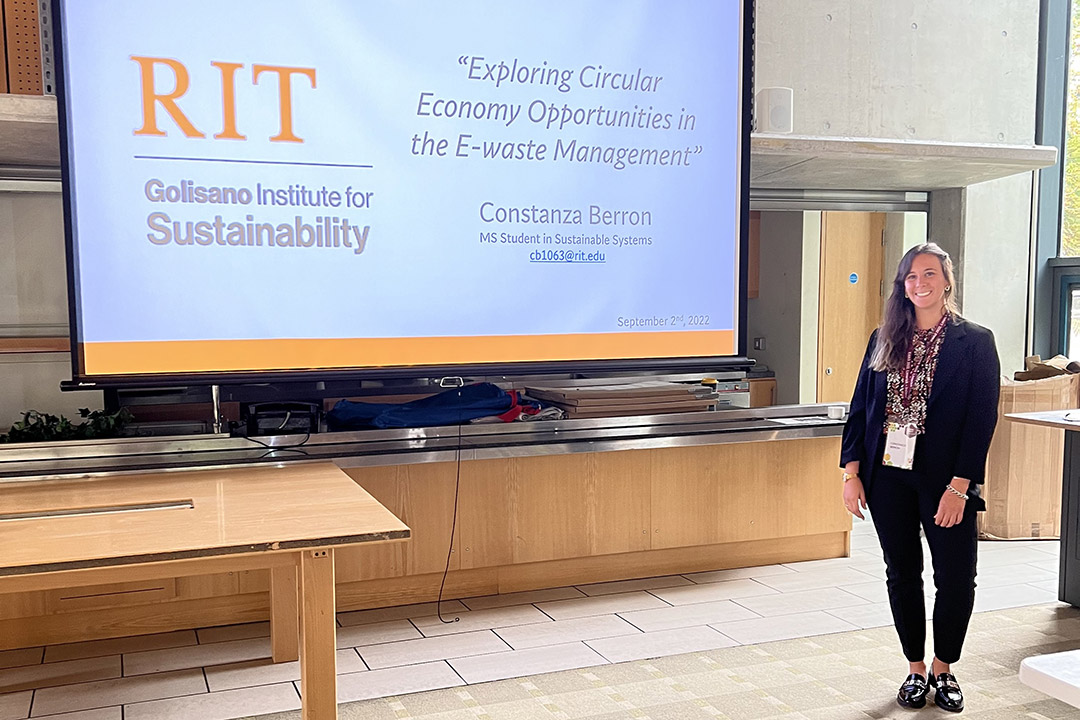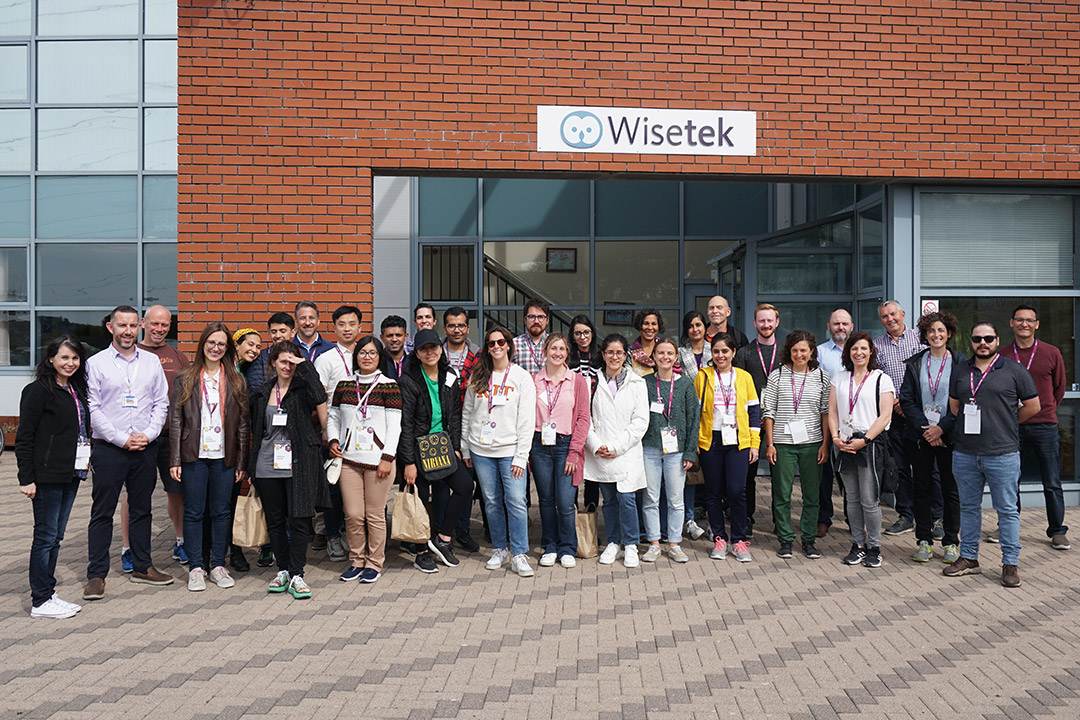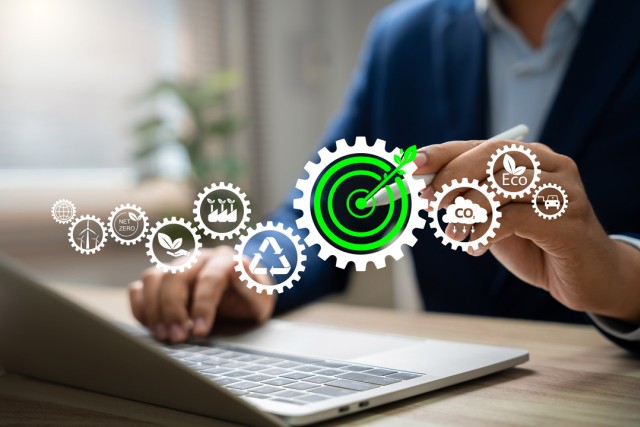Fulbright Scholar presents research in Ireland on circular economy in consumer electronics
Constanza Berron studies improvements to advance circularity in e-waste and create solutions to implement sustainable supply chains
Sofia Schlezak
Sustainable systems master’s student Constanza Berron presents her research on improving the circular economy for consumer electronics to reduce emissions.
Constanza Berron, a Fulbright Scholar from Argentina, went to Ireland to present her research on the circular economy in e-waste management. Berron, a master’s student in sustainable systems, assisted with research performed by RIT faculty members Nabil Nasr, associate provost for Academic Affairs and director of Golisano Institute for Sustainability, and Michael Thurston, a research faculty member in the Center for Remanufacturing and Resource Recovery, as well as Kyle Parnell, a Ph.D. student in sustainability.
Berron also received a 2022 Environmental Defense Fund Climate Corps fellowship to work at Whirlpool Corp., as a sustainability intern focusing on emissions from the end-of-life management of appliances.
Explain your research in circular economies.
As part of a research assistantship, I am working with renowned researchers and a Ph.D. student at Golisano Institute for Sustainability. The goal is to explore how the circular economy can make the supply chain for consumer electronics more sustainable. In particular, the research focuses on the viability of value retention processes (VRPs) such as direct reuse, repair, refurbishing, and remanufacturing at the end-of-life of electronic and electric equipment (EEE) in developed and developing countries. The research aims to provide support for policymakers.
What have you enjoyed most about conducting research?
What I like most about this research is how connected it is to the real world. I was able to learn about electronics from many different perspectives. For example, I got to know technical characteristics of these types of products, such as material composition and features, social aspects related to consumer behavior and how people interact with electronics, economic aspects concerning how VRPs can be applied to keep the value of the products and materials within the economy and advance circularity, and legal aspects involving current policies in different countries and transboundary flows of used electronics. Furthermore, doing research allowed me to interact with researchers and faculty members at GIS and outside the U.S., while I attended the E-Waste Academy for Scientists in Ireland.
What was your experience in Ireland like?
The E-Waste Academy for Scientists in Ireland was amazing! It gathered global scientists, researchers, and professionals from more than 20 countries who are working in the e-waste field. It consisted of seven intensive days talking about a single topic: the e-waste challenge. Each participant presented a different perspective and experience related to e-waste. All these points of view created a rich, diverse, and cross-cultural environment, generating constructive and engaging discussions.
EWAS 2022
Constanza Berron stands among those in attendance at the 2022 E-Waste Academy for Scientists in Ireland in front of the recycling company Wisetek.
We also visited a remanufacturing facility from the Wisetek Co., which gave us a very hands-on experience of how companies are applying the circular economy at the end-of-use of electronic products.
Finally, during the Academy, I was able to connect with people working in renowned organizations such as UNIDO and Unitar. At the same time, my home country (Argentina) is part of a regional collaborative project (PREAL Project) from UNIDO and the Global Environment Facility (GEF) to promote the sound management of e-waste in Latin American countries. With the connections I made in Ireland, I will be participating in the meetings taking place in the context of this project and, hopefully, I will be providing support to my country on topics related to e-waste management.
How did your research connect to your internship with Whirlpool Corp.?
In November 2021, I applied for the EDF Climate Corps Fellowship. I could choose among different projects from NGOs, industries, and governments on topics about climate commitments, food and agriculture, zero-emission vehicles, and renewable and energy efficiency. Finally, I was matched with Whirlpool to work on a 12-week project during the summer. The first goal was to understand different ways of calculating a company’s indirect emissions, like those from sold products at their end-of-life phase. Then, I analyzed which of these calculation methods might work best for Whirlpool and gathered the data required to model these emissions for future integration in the Whirlpool GHG Emission Management System. Since Whirlpool is one of the global leaders in major home appliances, this opportunity was tightly related to my research.
What do you hope to do with your research and studies in the future?
In the future, I hope to translate the understandings and experiences learned during my master’s program (including the research experience and the Academy in Ireland) into technological innovations and activities with economic, social, and environmental value. My ultimate goal is to positively influence communities through a better understanding of how to work across research, policies, and stakeholders to create solutions to implement more sustainable supply chains.




